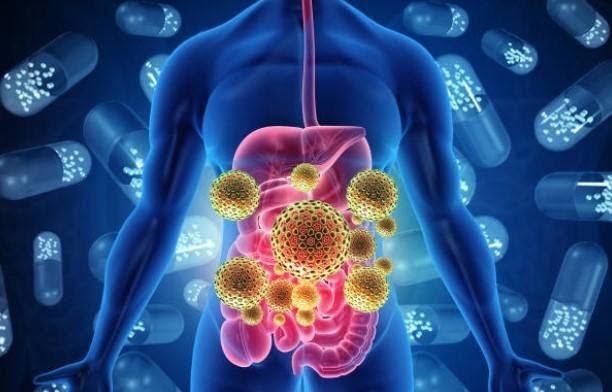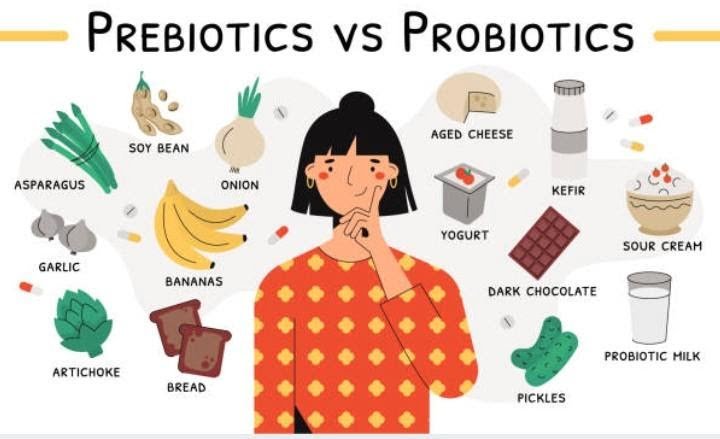Gut health is one of the common health concerns for people globally. Often the side effects seem so silent that individuals suffering from gut bacteria issues fail to identify the root cause. Global studies on gut health strongly correlate a healthy gut with the health condition of an individual.
Quick Navigation
What is Gut biome?
The gut biome comprises the group of microorganisms present in the human digestive system. Studies indicate that a human’s gut is a home for 300-500 types of organisms. While many of them are friendly, some can turn unhealthy, especially if they multiply. As many as 40% of individuals across the globe suffer from gut health issues.

How to Improve Gut Health?
As surprising as it may sound, a healthy gut has a link with individuals’ thought processes and happiness quotient. Additionally, the necessity to improve gut health has a crucial role to play in controlling obesity and lifestyle diseases. An individual can improve gut biome through lifestyle changes and adding in the best foods for gut health in the diet. This post talks about how to improve gut health, a gut health diet, and the changes one can make in daily life for a healthy gut.
Necessity to Improve Gut Health
The gut biome plays a crucial role in ensuring healthy absorption of nutrients, healthy skin, immunity, smooth bowels, weight management, and mood swings.
Damaged gut health can pose many health problems to individuals:
Sugar cravings
Individuals with an imbalance in gut bacteria show poor absorption of nutrients from their food intake. It can lead to unhealthy cravings, especially for high sugary foods. Thus, in the long run, individuals with poor gut health tend to eat more sugary foods, thus putting their health at risk.
Obesity or sudden loss of weight
Individuals with poor gut biomes tend to lose or gain weight for unknown reasons. Poor gut health can lead to overeating or under absorption of nutrients. Thus, sudden weight changes may be one of the signs that alert a person to improve gut health. Fatigue and a constant feeling of lack of energy can also indicate the need to get a gut biome check.
Sleep deprivation
The relation between a disturbed gut biome and sleep deprivation is interesting. Poor gut health can cause sleep deprivation, while lack of sleep can aggravate gut bacteria imbalance. Thus, an individual working to improve gut health should not ignore this cyclic relation between gut health and quality sleep.
Food intolerances
One of the primary reasons for an individual’s food intolerance is the lack of a healthy gut. Gut bacteria play a vital role in ensuring the digestion and absorption of nutrients. Any disturbance in the gut biome can create food intolerances. They cause bloating, acidity, diarrhea, heartburn, and stomach pain.
Suggested Reading: Tips to switch from processed foods to healthy eating
Lifestyle changes ways to Improve Gut Health
It is possible to improve the gut biome by bringing in lifestyle changes.
1. Stay away from chemicals
Studies indicate that children exposed to cleaning chemicals at home suffer from poor gut health. Cleaning products such as surface cleaners and floor cleaners can trigger gut biome imbalance in kids.
2. Bring down stress levels
Stress can aggravate gut biome disturbance. Find methods to bring down stress levels. Simple techniques like spending time with pets, family, and kids help alleviate stress levels.
Yoga and breathing techniques are equally effective in smoothening stress. Seeking the help of music, massages, usage of essential oils, digital detox, and getting closer to nature are all effective ways to combat stress.
3. Avoid processed and sugary foods
Processed food provides zero nutrition to the human body. It can lead to food intolerances and vitamin imbalances when consumed for a long time. Kick away processed and sugary foods along with minimizing smoking, caffeine, and alcohol.
4. Get that beauty sleep
A quality 6-8 hours of nighttime sleep is essential for a good gut biome. It helps your gut to balance the bacteria and perform its natural functioning. Hit the bed early and wake up early to improve gut health.
5. Use antibiotics minimally
Antibiotics can be one of the main reasons for the disturbance of gut biome levels. The effect of antibiotics stays as long as 6 months after their stoppage. Thus, unless they are indispensable, avoiding antibiotics can help improve gut health to a large extent.
6. Chew and swallow
Half of the digestion happens when we chew the food taking enough time. Thus, chewing smoothens digestion and absorption of nutrients from food. To improve gut health, it is essential to eat slowly after chewing thoroughly.
7. Work on thoughts and mindset
As surprising as it can be, our minds and gut communicate with each other constantly. Thus, any imbalance in the gut biome disturbs the thinking process. Hence, tuning the brain to stay optimistic may help improve gut health.
8. Include exercise into the daily routine
Studies indicate a direct impact of exercise on gut health. Regular exercise improves the diversity of the gut biome. When combined with muscle-strengthening activities, a regular workout session of at least one and a half an hour per day enhances the gut biome.
Foods for gut health
The relation between a healthy gut and the side effects due to its imbalance is the same across various individuals. Various natural foods can improve gut health.
However, studies strongly indicate that a gut health diet should match one’s hereditary diet habits. Though there may not be any issues with trying foreign diets that may improve gut health, a person’s body may take more time to accustom to such diets. Thus, to design a gut health diet in such a way that it is closer to an individual’s native diet habits.
Here are some foods to include in the diet to improve gut health:
Fermented foods and probiotics
One of the richest sources of healthy gut biome is fermented foods. They are a good source of probiotic bacteria that plays a vital role in attaining a healthy gut.
Kimchi, sauerkraut, yogurt, tempeh, miso, and kefir are fermented foods that improve gut health.
Indian foods like dosas, idlis, dhoklas, curd, homemade pickles, buttermilk, milk with turmeric are effective to obtain a healthy gut naturally. The levels of healthy gut biome in all these foods are higher when they are homemade than store purchased.
Spices to boost metabolism
Adding spices such as coriander, cumin, fennel seeds, ginger, and garlic to soups and gravies is the easiest way to speed up digestion and improve gut health.
Take Prebiotic fiber
For probiotics to act effectively, prebiotic fiber is essential. Thus a wholesome gut health diet must include prebiotic fiber.
Bananas, garlic, onions, whole grains, oats, legumes, peas, berries offer quality prebiotic fiber.

Keep sipping water
A well-hydrated stomach lining can promote good gut bacteria. Thus, it is essential to drink enough water to keep your gut healthy.
Switch to a vegetarian diet
A vegetarian diet is proven to improve gut health. Individuals with gut issues are identified to show improvement when they turn vegetarian. Skipping dairy products and red meat and incorporating more fresh fruits, vegetables, and whole grains helps gain a healthy gut.
Wrapping Up
Gut health plays a crucial role in weight management, preventing auto-immune diseases, and enjoying a good sleep. Incorporating regular exercise, the quality fiber in the diet, and adding probiotics and prebiotics from natural sources can improve gut functioning.
At AvaniGo, we are passionate about India and its mesmerizing culture. We intend to share the greatness of Indian culture through our articles. To learn more about us and contribute to our website, email us at hello@avanigo.com.

